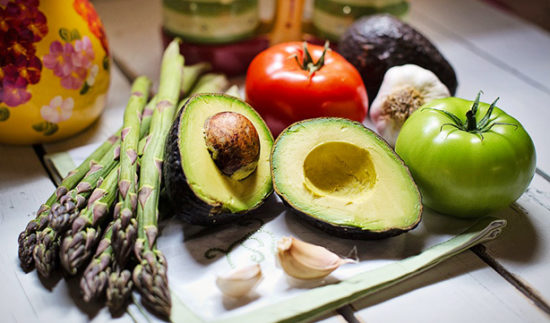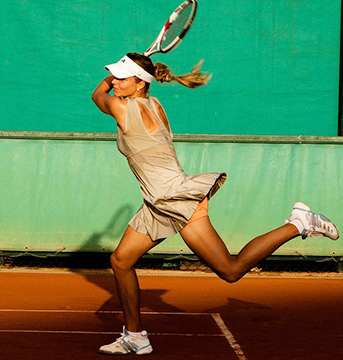Nutritional Value: Pay attention to your vegetarian athletes
Be sure the focus is on what they’re consuming — not what they’re avoiding

How many vegetarian student-athletes do you have on the team? Concerned they may not be able to keep up in practice? Will they get injured more often? And what about eating on road trips when choices are limited?
Today, being vegetarian ranges from eliminating only red meat to completely avoiding all animal products. The key to a healthy plant-based eating style, however, lies with the foods an athlete chooses to include. Not those they choose to avoid.To be successful, vegetarian athletes must step up to the plate and take responsibility for their food choices. This translates into thinking about and planning a daily menu that supplies adequate energy, as well as incorporates alternate sources of key nutrients typically supplied by meat and dairy foods, such as protein, iron, zinc, calcium and vitamin B12. It’s not as simple, in other words, as skipping the meat and only eating the potatoes.
Pros & cons
Well-planned vegetarian diets built around health-promoting fruits, vegetables, whole grains, legumes and soy foods can reduce the risk for heart disease, diabetes and some cancers. It also helps an athlete maintain a healthy weight.
While a plant-based eating style doesn’t guarantee a physical advantage, study reviews have concluded it has no detrimental effects on performance either.
A potential pitfall of vegetarianism is unbalanced eating where animal foods are eliminated with little regard to appropriate substitutes. In this scenario, a vegetarian diet becomes extremely unhealthly high in saturated fat, refined carbs, sugar and hydrogenated oils, and low in protein, iron, zinc and calcium. This places athlete at greater risk for iron-deficiency anemia, a weakened immune system, nagging injuries and, for females, an out-of-balance menstrual cycle, which contributes to stress fractures and poor bone health.
In some instances, vegetarianism is a red flag that a person is restricting food needlessly. Female athletes, especially teens who struggle with weight and body image issues, may use vegetarianism to justify avoiding certain foods. They may avoid fat-containing vegetarian fare such as nuts and avocados, or they may eliminate meat and dairy foods and then be unwilling to seek out appropriate substitutes.
 Semi-vegetarians who eat poultry or fish can obtain the same range of nutrients as red meat eaters. Those who avoid mean but eat dairy foods and eggs typically meet protein, calcium and vitamin B12 needs. However, they may have trouble getting enough zinc and iron.
Semi-vegetarians who eat poultry or fish can obtain the same range of nutrients as red meat eaters. Those who avoid mean but eat dairy foods and eggs typically meet protein, calcium and vitamin B12 needs. However, they may have trouble getting enough zinc and iron.
Vegans, those who avoid all animal foods, are most at risk for insufficient calories and nutrient deficiencies. Any vegetarian athlete who primarily eats only the starchy side dishes of meat-focused meals (which results in “carbohydrate overload” and a diet inadequate in protein, iron and zinc) benefits significantly from working with a sports dietitian in building cooking and diet-planning skills.
Protein
It’s possible to obtain all the essential amino acids needed to form complete proteins by eating a wide variety of plant protein sources throughout the day.
Combining specific protein-rich foods at each meal isn’t necessary. Enough calories must be consumed, however, to maintain weight and fuel-training demands.
Otherwise, the body resorts to using the protein for energy rather than building and repairing muscle and other body tissues.
Soy foods (e.g., tofu, tempeh, soy milk, veggie burgers, etc.) and legumes (e.g., kidney, pinto, black and garbanzo beans) offer the highest quality plant protein and some of each should be consumed daily. Non-vegans also obtain high-quality protein from eggs and other dairy products.
Iron & zinc
Both minerals are vital for a healthy immune system; plus adequate iron is needed for building healthy red blood cells and avoiding the fatigue associated with iron-deficiency anemia.
Vegetarian athletes need to make a conscious effort to include good meatless sources of iron and zinc daily, as animal sources of iron and zinc are far better absorbed and utilized by the body. Whole grains, lentils, wheat germ, soy foods and sunflower seeds contribute zinc. Leafy greens, dried fruit, whole grains, oatmeal, beans and lentils, soy foods and fortified breakfast cereals supply various amounts of iron.
Calcium
Calcium is a priority nutrient necessary for strong bones and teeth, as well as to help muscles relax and contract. Athletes age 18 to 50 require at least 1,000 milligrams of calcium daily. Including dairy foods makes it easy as one cup of milk or yogurt or 1 1/2 ounces of cheese supplies 300 milligrams.
Other options include: tofu, leafy greens (except spinach), broccoli, figs and almonds. Also consider calcium-fortified foods like soy milk, cereal, breakfast bars and juice.
Vitamin B12
B12 is needed for healthy red blood cells and nerve fibers, and it’s found almost exclusively in animal foods. Despite being touted as good sources, much of the vitamin B12 in sea vegetables, tempeh, miso or spirulina is in an inactive form your body can’t use readily.
Options include fortified foods, such as certain brands of soy milk, soy burgers and cereal or a multivitamin.
Vegetarian options on road trips
Support vegetarian athletes when stopping to refuel on the road by choosing venues offering multiple options. Ethnic eateries serving Mexican, Thai or Chinese fare, for example, typically work well for both meat-eaters and non-meat-eaters.
Another plus for vegetarian athletes is a nearby well-stocked grocery store or supermarket. Visit the Vegetarian Resource Group (vrg.org) for more ideas and resources on dining out.
Suzanne Girard Eberle, MS, RD, CSSD, is a board-certified sports dietitian and the author of Endurance Sports Nutrition.





